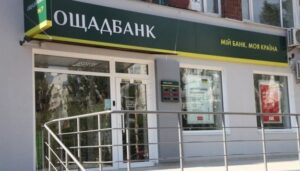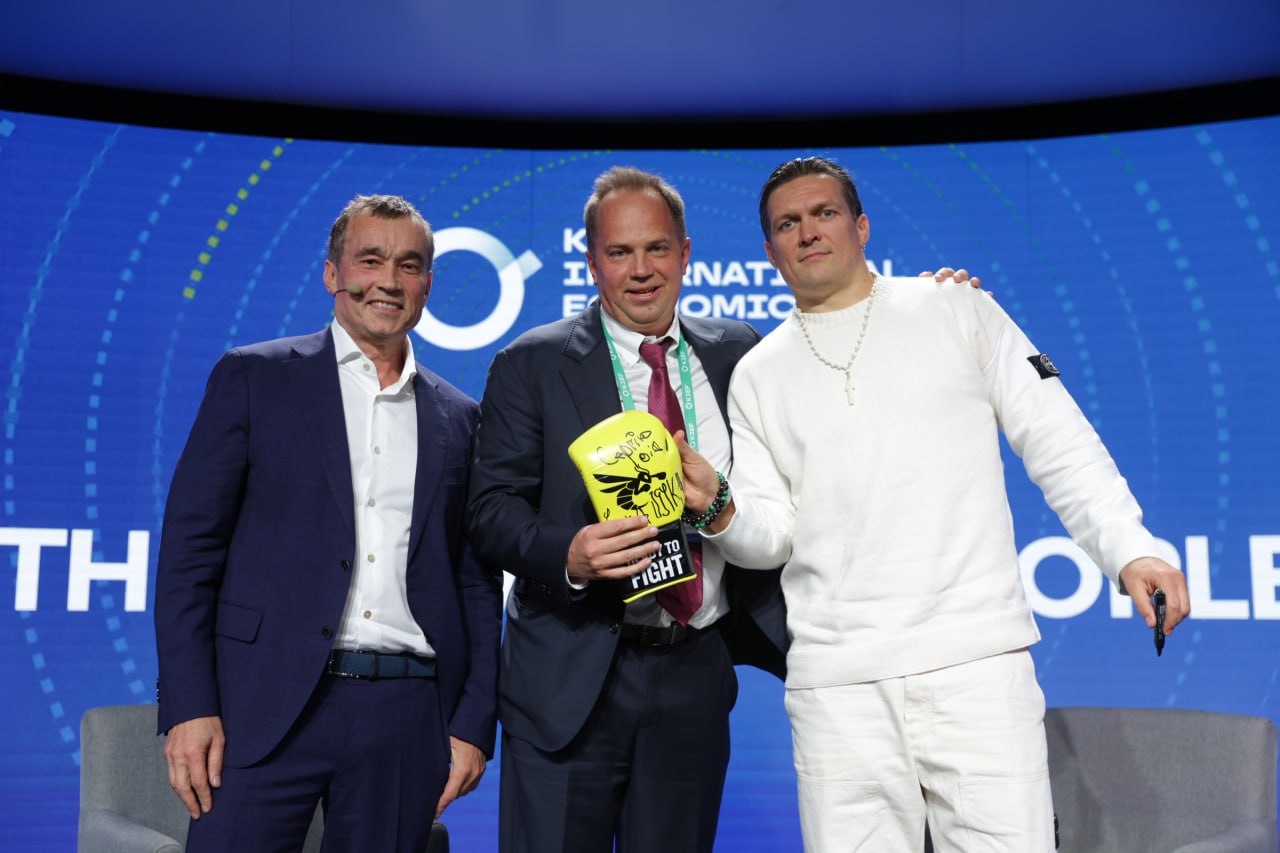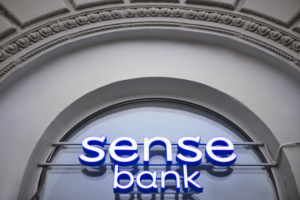
In October 2025, Oschadbank increased its portfolio of loans to legal entities by UAH 4.2 billion, which, according to its data, is the largest increase among Ukrainian banks, according to a release on the financial institution’s website.
Oschadbank noted that the total volume of its loan portfolio to legal entities as of October 1 this year amounted to UAH 99 billion, of which UAH 30 billion were loans to micro, small, and medium-sized businesses, with the remainder going to corporate businesses.
As noted in the release with reference to the National Bank’s data, Oschadbank’s net portfolio at the beginning of October accounted for 13.6% of the corporate lending market, securing its leading position.
“During the full-scale invasion, Oschadbank has been directing its free liquidity to support the real sector of the economy, and during this period, the corporate business loan portfolio has grown more than one and a half times, or by UAH 23.5 billion, with this segment accounting for 70% of the corporate portfolio,” said Yuriy Katsion, deputy chairman of the bank’s board, who is responsible for this area, in a press release.
As reported, in October 2025, the corporate segment’s loan portfolio grew by 2.6%, or UAH 26.9 billion, to UAH 970.1 billion. Hryvnia loans to businesses added 1.7%, or UAH 11.5 billion, reaching UAH 689.7 billion, while foreign currency loans increased by 4.2%, or $267 million, to $6.68 billion.
According to the NBU, at the beginning of October this year, Oschadbank, with total assets of UAH 485.69 billion (12.3% of the total), was second among 60 banks in terms of this indicator.

Almost all member companies of the European Business Association (EBA) complain about a shortage of personnel: 74% consider this problem to be significant, 21% report a partial shortage, and only 5% did not experience a shortage of personnel in 2025, according to a study of the Ukrainian labor market by the EBA.
“It is most difficult to fill vacancies for workers and technical specialists due to staff turnover and low motivation to work offline. There is also an acute shortage of narrow-profile specialists with knowledge of English, who are needed by international companies,” according to the results of the study published by the association’s press service.
It is emphasized that, in addition to them, it is difficult to find sales managers and middle managers, as their work requires constant presence, and booking opportunities are limited.
In addition, 46% of companies noted that the departure of young professionals aged 18-22 had a definite or significant impact on their activities. 42% did not feel any impact, while 12% noted that they did not yet have enough data to assess the situation.
In addition to the labor shortage, key trends in the labor market include inflated salary expectations on the part of candidates, the impact of mobilization, difficulties in booking workers, and staff turnover.
Among the companies surveyed, 46% noted that all employees are currently working from within Ukraine, compared to 35% of companies last year. At the same time, 47% have up to 10% of employees working from abroad, and only 5% of companies have more than 10% of such employees. The rest (approximately 2%) do not have accurate information.
Most employers (63%) do not plan to require employees to return to the office in the near future, 37% are considering this possibility, but 12% of them do not plan to bring back all categories of employees.
As for companies’ plans, most have a clear vision for development in 2026.
“The main focus of business is on increasing salary levels – this is planned by 94% of companies. In particular, 28% of companies anticipate growth in the range of 11-15%, 23% – 5-10%, 10% expect growth of 16-20%, and 6% of companies do not intend to raise salaries in 2026,” according to the EBA.
As for other plans, 36% intend to increase the number of employees next year, 55% do not plan any changes, and 9% plan to reduce their workforce. 17% of companies reported a redistribution of functions towards multifunctionality.
During 2025, most companies (83%) actively recruited new employees. Another 3% opened vacancies exclusively for internal candidates, and only 14% of respondents did not change their headcount.
In addition, 25% are planning to increase their budgets for staff training and development, 18% of respondents are planning to enter new markets and search for partners, 6% may change management or open new regional offices, 5% will reduce training costs in 2026, and 3% are planning to close offices.
The survey was conducted from October 2 to November 1, 2025, with 126 human resources professionals participating (41% department heads, 33% middle managers, 22% top management, and 4% junior staff). Among the respondents, 56% represent large businesses, 32% represent medium-sized businesses, and 12% represent small businesses. 58% of companies are international, and 42% are Ukrainian.

Following the Kyiv International Economic Forum, entrepreneur Vasyl Khmelnytsky published a column with conclusions from a public conversation with undisputed world boxing champion Oleksandr Usyk. The key idea is that lasting victories are built on the “long game,” through discipline, consistency, and teamwork, rather than quick decisions.
According to the author, business and sports share the same principles: daily routine work, discipline, the ability to learn from mistakes, and reliance on the team. Usyk, using his own regime as an example, emphasizes that it is not motivation that matters, but habit and responsibility to the team. The column notes that long-term sustainability is created by investing in processes and people, and mistakes are seen as data for improvement.
The context of the forum is a focus on people and economic recovery. A charity auction was held during the meeting: gloves autographed by Usyk were sold for UAH 1,100,000, and the proceeds from the sale were donated to the Soborna Ukraine Foundation to support the children of fallen defenders.

“We are in it for the long haul. A champion is not afraid to lose — he learns. A strong leader surrounds himself with strong people and delegates,” Vasyl Khmelnytsky highlighted from the conversation at KIEF.
What does all this mean for business?
1) Strategy: prioritize long-term goals and sustainability over “quick wins.”
2) Operations: focus on establishing routines and process metrics rather than one-off spikes.
3) Team: build trust and fair rules, strengthen the role of department leaders.
4) risk management: formalize error analysis and a plan for corrections after each “round.”
Vasyl Khmelnytsky is a Ukrainian entrepreneur and investor, founder of UFuture. He initiates and supports educational and entrepreneurial projects, including schools and acceleration programs. A regular participant in KIEF, he writes columns on entrepreneurship, team development, and business.
Oleksandr Usyk is a Ukrainian professional boxer and undisputed world heavyweight champion. He is known for his discipline, team approach, and systematic training. He participates in charitable and public initiatives and supports projects to help children and veterans.

Which regions became tourist centers?
According to the State Tax Service, UAH 91.7 million in tourist tax was paid to local budgets from July to September 2025.
In total, businesses paid UAH 234.4 million in tourist tax over the first nine months of 2025. This is 1.5 times more than during the same period before the start of the full-scale war. Kyiv, Lviv, and Ivano-Frankivsk regions remain the largest contributors to local budgets.
Local budgets received UAH 234.4 million in tourist tax for the first nine months of 2025. This is 36% more than in the same period last year and 1.5 times more than before the start of the full-scale war.
The summer season is traditionally the “golden time” for the tourism industry. Businesses paid 91.7 million hryvnia in tourist tax from July to September 2025. This is 20% more than in the second quarter of this year — 76.2 million hryvnia.
More than half of the tourist tax — 53% or UAH 125.2 million — was paid by large businesses: hotels, sanatoriums, and recreation centers. The remaining 47% or UAH 109.2 million was paid by small businesses, i.e., owners of apartments, estates, and small tourist facilities. It is worth noting that revenues from small businesses increased by 39%, while those from large businesses increased by only 6.5% during this period.
The capital remains the undisputed leader of Ukrainian tourism. A fifth, or UAH 51 million, of the tourist tax was paid in Kyiv. 81% of this amount came from large businesses.
Lviv region is in second place with UAH 42.5 million — here the share of large businesses is smaller, 56%. Ivano-Frankivsk region closes the top three — UAH 32.5 million, while 55% of the tourist tax in the region was paid by small businesses.
The amount of tourist tax collected in the Odesa region increased the most during the holiday season. Despite this, the region’s figures for the first nine months are still 17% lower than for the same period in 2021.
Compared to the pre-war period, the amount of tourist tax collected in Bukovina increased fivefold. At the same time, 90% of the amount was provided by owners of apartments, estates, and small tourist facilities. Ivano-Frankivsk region is also among the leaders: the amount of tourist tax for this period increased 4.5 times.

Small and medium-sized businesses (SMEs) remain the foundation of post-war economic recovery, and this segment will be the focus for Sens Bank in 2025–2026, said Yana Shumunova, director of the SME department, in an interview with Interfax-Ukraine.
“We are seeing growth in demand for loans to restore logistics, purchase equipment, and implement energy-efficient solutions. This is the foundation for the return of Ukrainian business to sustainable growth,” she said.
The bank is also strengthening its cooperation with the EBRD and international funds to expand SME lending programs.
Sens Bank is a Ukrainian universal bank specializing in the corporate and retail segments. After coming under state control, the bank is transforming its business model, focusing on technology, transparency, and support for SMEs.

Apple Inc. intends to continue increasing investment in business development in China and further strengthening cooperation with the aim of achieving mutually beneficial development, said the company’s chief executive Tim Cook at a meeting with China’s Minister of Industry and Information Technology Li Lichen.
The minister noted that China’s massive domestic market and comprehensive industrial system have enormous potential in terms of investment and consumption, according to Xinhua News Agency.
“We hope that Apple will continue to develop the Chinese market, actively participate in China’s reindustrialization, and work with Chinese companies to promote innovative development across the entire production chain,” Li Lichen said.
He added that China is committed to a policy of openness to the outside world, intends to promote the application of intelligent technologies in industrialization and the intelligent transformation of industry, and will contribute to the creation of a favorable business environment for enterprises with foreign capital participation, including Apple.